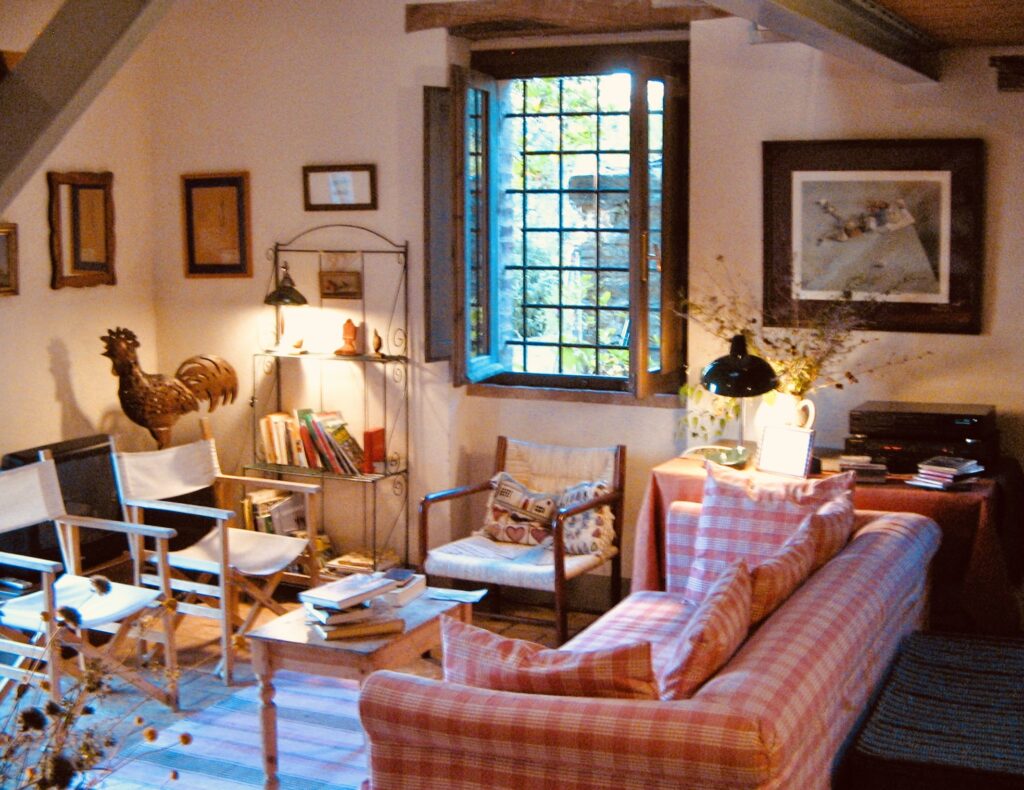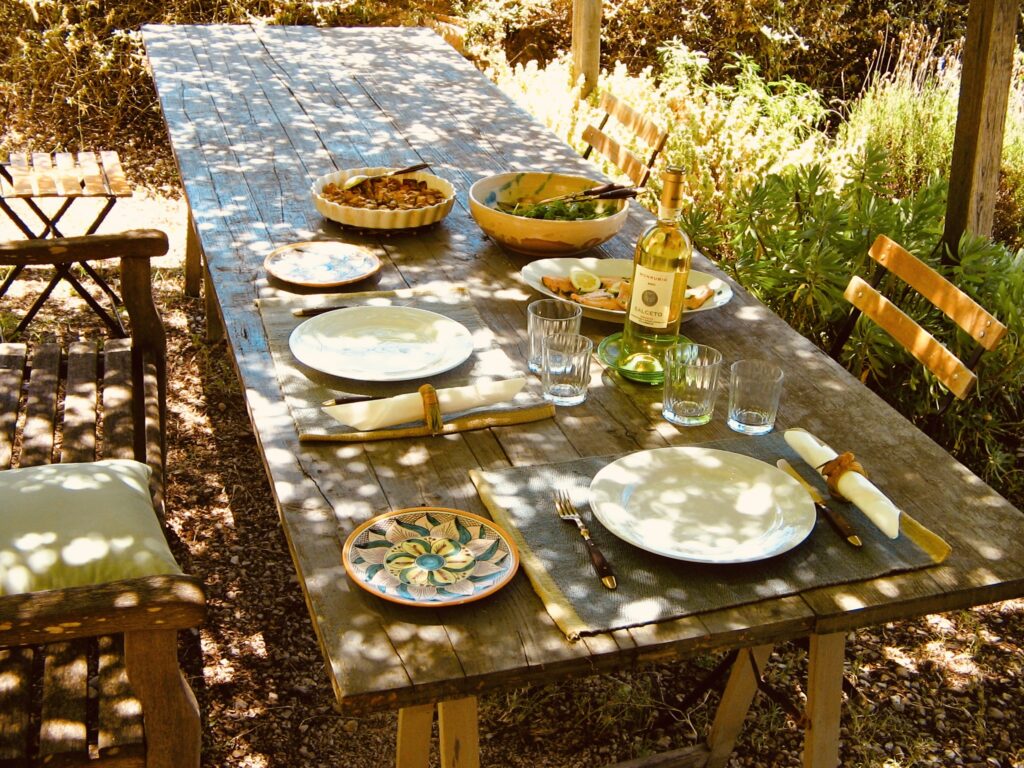
By Francesco Bianchini
A summer sojourn a few years ago taught me more about houses than years of looking for properties, buying and restoring them, and taking good care of them. For two weeks Dan and I rented a lady friend’s vacation home not far from Civitella del Lago, perched in the high hills of Umbria. Orietta’s cottage taught me to scale back my earthly desires and to redefine my lifestyle priorities. To begin with, houses should not be looked at, but should let people look out. Whether by luck or wise choice, she had found a plot of land in a lonely and elevated area, overlooking the hills that frame the lake of Corbara, that man-made widening of the Tiber river between Orvieto and Todi. There the eye happily finds itself on the expansive horizon, bouncing up criss-crossed waves of hills to the dove-blue mountains of Tuscany. In short, a vista that neither excludes nor overpowers, but can prolong summer evenings indefinitely, lending a magical impression to every last, unmissable ray of sunshine, hovering like the drop that remains at the bottom of a glass. First lesson: a good view cures many ills.
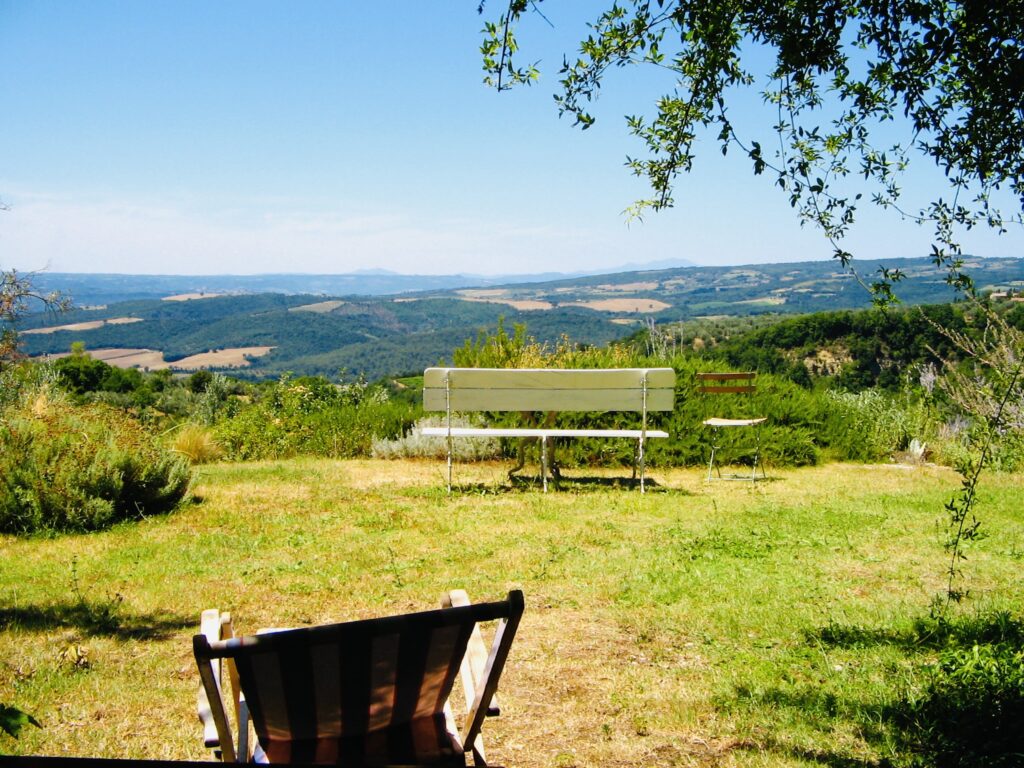
Over the Umbrian hills, toward the blue smudge of Tuscany
Orietta wasn’t tempted to build one of those new multi-level, multi-porticoed travesties of a farmhouse, but instead restored what the French call a bergerie, a modest sheep shed, expanding the existing ruin with one room and a bathroom at the back, and a pergola extending from one of the ends. There is no superfluous space, just the necessities for a simple life, yet not lacking in enjoyment to the make the most of every hour. Each room opens both to the outside and to the rest of the house; each room takes advantage of the structure’s entire height, with a mezzanine from which you can peer down into both the salon and the kitchen. Orietta planned the whole to be spacious and functional, and had furnished the house with quality pieces. Nothing is in the way and nothing was left to chance; everything is conducive to productive idleness. A couch sits in the living room so one can enjoy the view and benefit from natural light. The kitchen is also flooded with sunlight and has a long counter that ends with a barbecue-friendly, waist-level fireplace. Depending on the weather and time of day, it’s possible to dine in the kitchen, or out under the pergola – there surrounded by potted lemons, with a sweeping vista of garden and hills. Lesson number two: as long as you have ‘a room of your own’ you need far less space than you’re prone to think. Writer and gardener Vita Sackville-West, as an example, designed her farm with no extra lounges or guest rooms, but made sure that everyone had ample personal space.
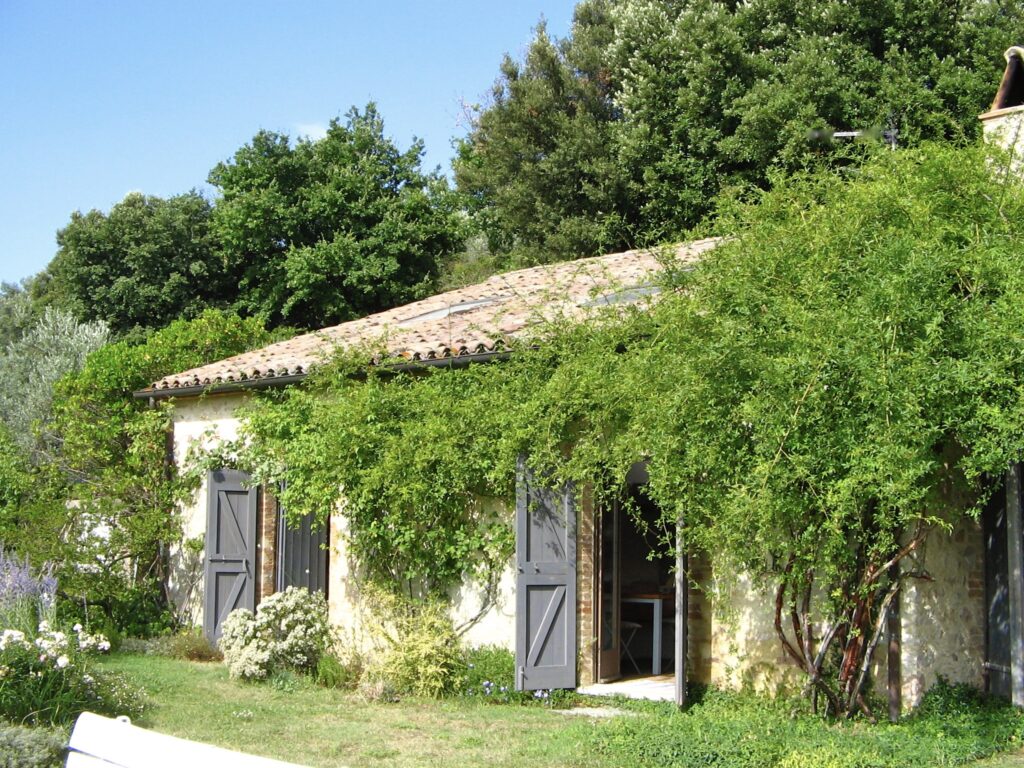
Rooms with a view
|
Simple comforts |
Summer cooking |
Orietta’s plot is so small that it was necessary for us to leave the car at the start of the drive and walk along a grassy path that winds among olive trees, clumps of rosemary, blue tongues of perovskia, tall blue umbrellas of agapanthus, and white shrubby roses. A skillful texture of white and blue on a green background, that garden. One arrives at the house, almost hidden with banksiae roses, already enchanted by the orchestration of perfumes and colors. Wisely, Orietta discarded the idea of a swimming pool, which would have disturbed the rural harmony, but had not neglected her vegetable garden that we were invited to raid. Exposed to good sun, situated lower down the sloping lot, the orto is partly concealed by an old tool shed, and provides a bounty of summer produce sufficient to prepare excellent ratatouille, baked eggplant and stuffed zucchini, tomatoes for Caprese salads and, of course, squash and their blossoms. The last intimidated me, those delicate fiore di zucca, with their fine and almost transparent petals. I was inspired to fry them, however, as the kitchen is entirely open and the fumes from hot oil can dissipate outside. Serenaded by the notes of Shostakovich’s Jazz Suites, and emboldened with a goblet frosted with chilled Orvieto Classico, I lowered the flowers – each stuffed with mozzarella, anchovies, sage, and then smothered in batter – into the boiling oil. With apprehension and wonder I watched as the oil lent architecture and substance to those caked lumps that waited pendulous for their turn in a bowl. Third lesson: a man who has created a garden, the Arabs say, has fulfilled his mission on this Earth. However small it may be – even a terrace does the trick – a garden, as long as it is intended for your eye and not for someone else’s, educates us in patience, humility, respect, a balance of failure and joy in every season.
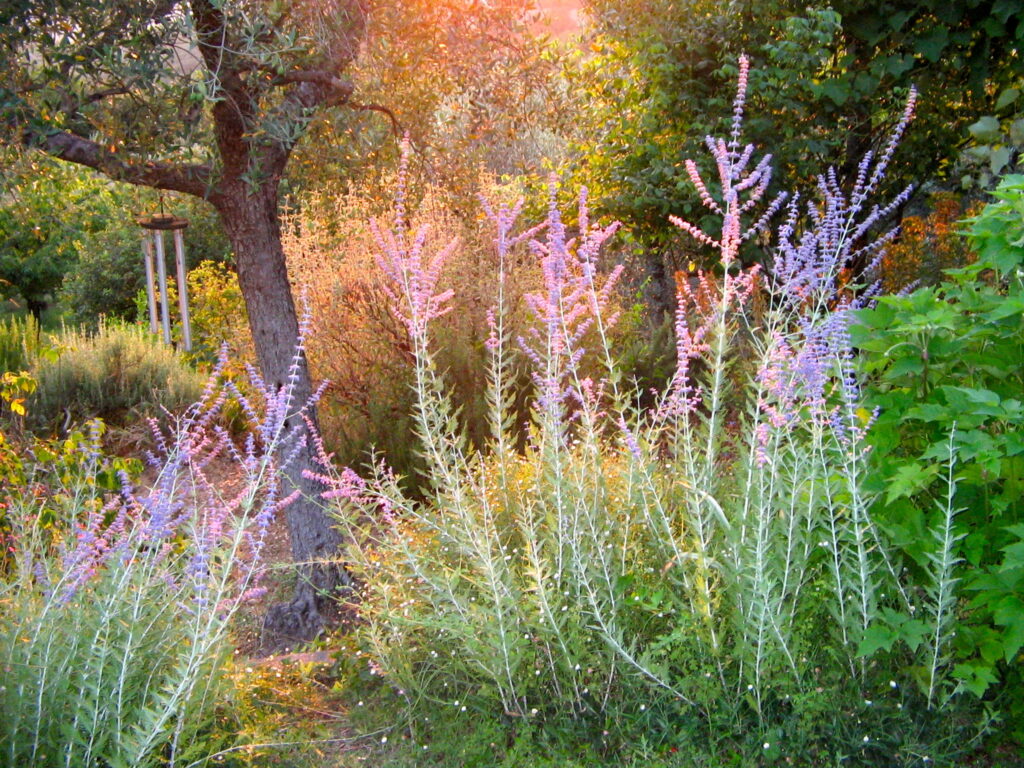
Orietta’s Way




